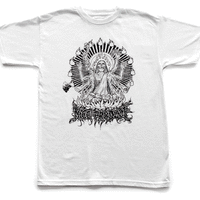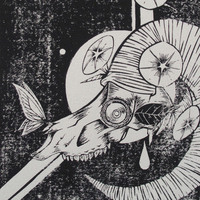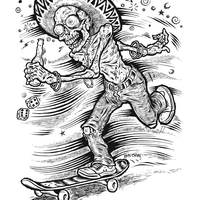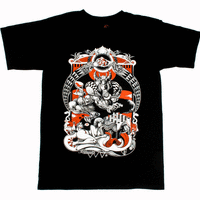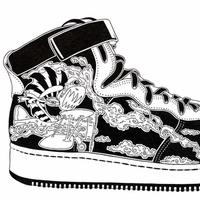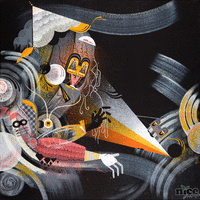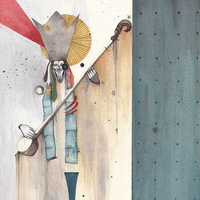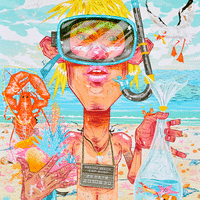Here’s the Jago interview.
for the rest check. www.ltrhds.com/blog

Bristol Based Mr Jago, a pioneer of the doodle, founder member of Scrawl Collective and a veteran in the street art movement and much respected among his peers.
Growing up in a small town, Jagos interests in art and design with influences from classic Marvel comics, graffiti and hip-hop culture have help forge his unique freehand style and distinct colour palette.
Jago has worked with some of the biggest international brands such as Nike, Puma, Xbox, Yohji Yamamoto & Boxfresh to name a few.
Mr. Jago joins the LTRHDS exhibition with his reinterpretation of the letter J
.
 .
.
 You’ve mentioned how your new works feature latent characters battling against the landscape that subsumes them. What does this struggle for definition represent? Is there a reason why your figures so overwhelmed and obscured by their surrounds?
You’ve mentioned how your new works feature latent characters battling against the landscape that subsumes them. What does this struggle for definition represent? Is there a reason why your figures so overwhelmed and obscured by their surrounds?
The figures are meant to represent us and our doings. I imagine our cities, pipes and power lines sprawling into the landscape like a giant alien parasite in a science fiction movie.
A synthetic entity gorging itself and expanding, with no Godzilla to slap it and tell it to bugger off back to its own planet. The battle in my recent pieces is me playing with the conflict between man and nature… looming figures scour their way across the landscape like storm clouds leaving destruction & noxious gases in their path.
.
.
.
 Your fantastic landscapes look like giant gassy nebula clouds… even though you have moved away from your anime-inspired art, tell us about the way that science fiction continues to inform your abstract style.
Your fantastic landscapes look like giant gassy nebula clouds… even though you have moved away from your anime-inspired art, tell us about the way that science fiction continues to inform your abstract style.
It seems that in the space of my short lifespan a lot of what was science fiction has already become science fact.
We are constantly bombarded with the evidence of our impact on the environment, so the worlds I imagine in my work could be our own. A common landscape in science fiction (old and new) is a planet sapped of all its resources, a toxic and hostile environment in which mankind is left to scratch out an existence.
The clouds in my paintings are the imagined fallout from the damage done but like oil and fossils the clouds could also be us.
..
..
You seem to be  working a lot with triptychs lately – why this choice? Has the sprawling nature of your work been a gradual development or did you make a conscious choice to start painting on a larger scale?
working a lot with triptychs lately – why this choice? Has the sprawling nature of your work been a gradual development or did you make a conscious choice to start painting on a larger scale?
The triptychs came about simply from me switching from canvas to paper. After several frustrating attempts at fitting my marks within the dimensions of a single sheet I chose to adopt the same attitude
I would when approaching a wall piece: simply by spreading out and adding more paper, I gave myself more space to work within, and this ended up leading to a slightly more panoramic look to my landscapes.
.
 Working in a call center did you ever think you weren’t going to make it as an artist? How close did you come to throwing it all in, and what kept you going?
Working in a call center did you ever think you weren’t going to make it as an artist? How close did you come to throwing it all in, and what kept you going?
I think if anything it was the call centers that lead to me having a career. The longer I spent in them the more it became apparent that I would lose my soul (and my marbles) if I stayed in that line of work.
There was no time to talk to your fellow ‘slaves’ and not much fun to be had either, so the only tactic to stay sane was to draw. I worked with my friend Will Barras, and we would pass doodles back and forth to try and make each other laugh, often ending calls prematurely!
This went on for a while until Will made the leap and got out to pursue his career in illustration.
Before long I took Will’s lead and used my evenings to scan drawings onto my Mac at home and then colour them up; and after shopping them around to record labels and magazines with little success, my big break came when Ric Blackshaw saw some flyers I’d been doing for club nights in Bristol.
He included some of these designs in the first Scrawl book. Before long Ric was getting enquiries about my work from some pretty big clients. It was the confidence boost I needed to leave the ‘battery farm’ vowing never to return. When things are tight the memory of my time in the call centers helps to keep things in perspective.
..
 Was Rolf Harris really one of your earliest artistic influences?
Was Rolf Harris really one of your earliest artistic influences?
I grew up with Rolf’s happiness on the TV. It was his large scale speed paintings that I admired the most.
At school I was told I was good at art but like most children wasn’t very confident with someone looking over my shoulder as I worked. Rolf just got on with it. I loved the way he would bang on the colour not once appearing to worry that his painting could go wrong. He was the king!

















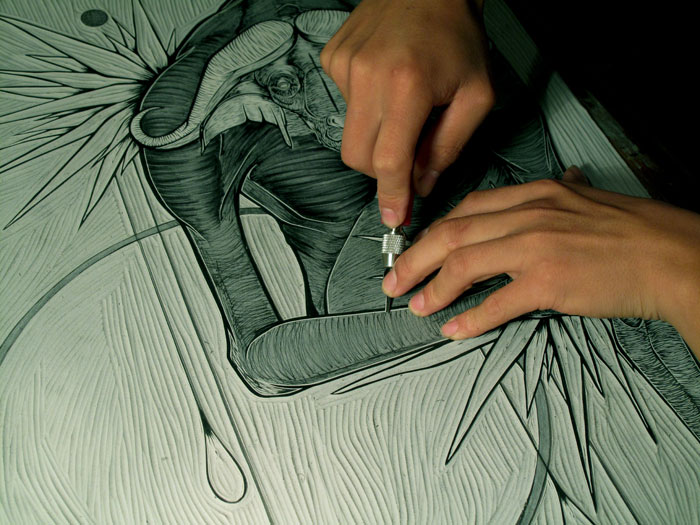
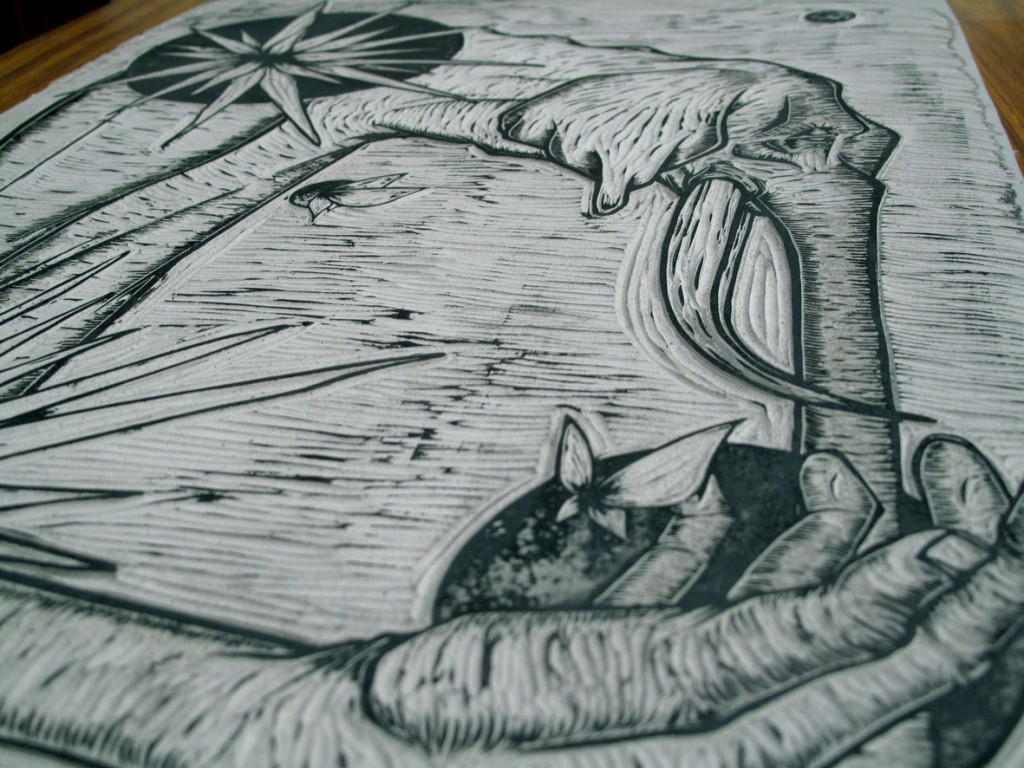






























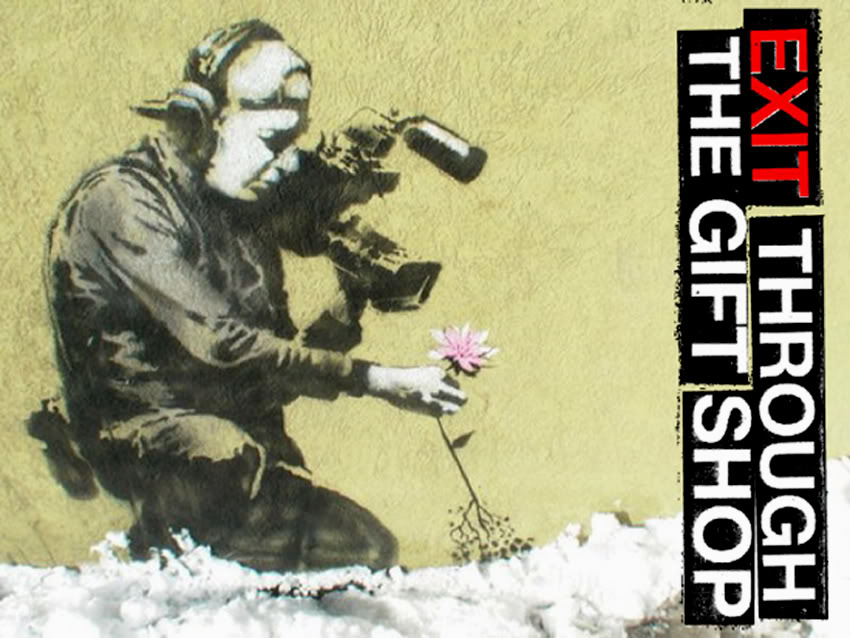
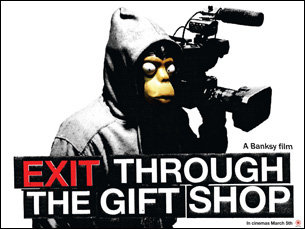




 You’ve mentioned how your new works feature latent characters battling against the landscape that subsumes them. What does this struggle for definition represent? Is there a reason why your figures so overwhelmed and obscured by their surrounds?
You’ve mentioned how your new works feature latent characters battling against the landscape that subsumes them. What does this struggle for definition represent? Is there a reason why your figures so overwhelmed and obscured by their surrounds? Your fantastic landscapes look like giant gassy nebula clouds… even though you have moved away from your anime-inspired art, tell us about the way that science fiction continues to inform your abstract style.
Your fantastic landscapes look like giant gassy nebula clouds… even though you have moved away from your anime-inspired art, tell us about the way that science fiction continues to inform your abstract style. working a lot with triptychs lately – why this choice? Has the sprawling nature of your work been a gradual development or did you make a conscious choice to start painting on a larger scale?
working a lot with triptychs lately – why this choice? Has the sprawling nature of your work been a gradual development or did you make a conscious choice to start painting on a larger scale? Working in a call center did you ever think you weren’t going to make it as an artist? How close did you come to throwing it all in, and what kept you going?
Working in a call center did you ever think you weren’t going to make it as an artist? How close did you come to throwing it all in, and what kept you going? Was Rolf Harris really one of your earliest artistic influences?
Was Rolf Harris really one of your earliest artistic influences?





